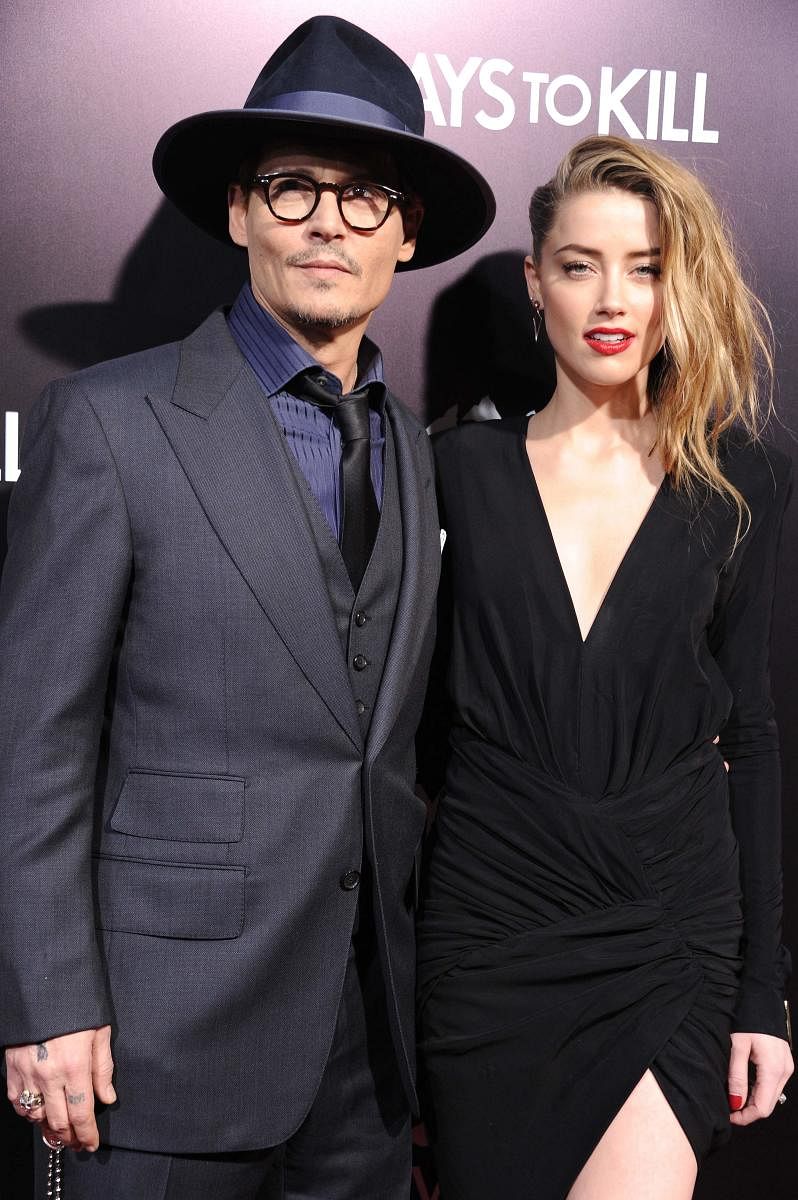
The six-week trial involving Johnny Depp and Amber Heard and their allegations of domestic abuse has ended, with the jury awarding Depp $15 million in damages for defamation and Heard $2 million as compensation for defamatory statements made by Depp’s attorney.
The verdict, seen as a significant legal victory for Depp, also appears to have re-contextualised celebrity for the consumption, and approval, of unaccountable, opinion-shaping social media jurors. The trial had instantly morphed into a high-stakes game of arena sport with the spectators, often shunning insight for the emoji, memefying proceedings live-streamed from the courtroom in Virginia, US.
The viewer remained invested, largely because of what the show essentially entailed — the fascinating ordinariness of the rich and famous. The plot twists and the reveals, however, cannot have us undermine the trial’s larger political import, as reflected in the social media support that swelled for Depp (58). The superstar was accused by actress and former wife Heard (36) of abuse, without naming him, in an op-ed she wrote in The Washington Post in 2018.
“...I became a public figure representing domestic abuse, and I felt the full force of our culture’s wrath for women who speak out,” Heard wrote in the piece. She said she had the “rare vantage point of seeing” how institutions protect men accused of abuse. Heard had filed for divorce in 2016 and accused Depp of physical abuse. The divorce was finalised in 2017.
Depp took on allegations made in the 2018 article with a $50 million defamation suit; Heard responded with a $100 million counter-suit. Depp has testified that he was not the abuser but the victim of Heard’s abuse. Depp’s lawyers, in their closing arguments, told the jurors that the allegations had severely impacted the actor’s life and career. Heard’s lawyers appeared to have invoked a larger social reality when they argued that a verdict in favour of Depp would send a dispiriting message to survivors of abuse.
Dr Laurel Anderson, Depp’s and Heard’s former therapist, has stated in a video testimony that the couple had engaged in “mutual abuse” toward the end of their marriage.
The abuse, soon, became peripheral; what really got the trial going for large sections of the spectator stands were the possibilities of piecing together a morality play that reevaluates the idea of victimhood and blunting post-#MeToo narratives on gender politics.
The verdict of the trial may or may not bring closure; it could validate or dismiss the allegations but outside of the for-against binaries, the cultural broadside directed at Heard which she spoke about in 2018 appears to have taken a more organised form. The popular verdict had already backed Depp as the only victim in what has evidently been a dysfunctional relationship and there could be more to it than a default response of suspicion to every woman speaking out about an abusive relationship.
An investigation by media non-profit the Citizens for Vice World News is reported to have revealed that news outlet The Daily Wire spent between $35,000 and $47,000 on Facebook and Instagram ads promoting content on the trial, most of it carrying a bias against Heard.
Depp has maintained that he has never struck a woman and has spoken about being targeted within the film industry following the publication of Heard’s piece. “...so strange when one day you’re Cinderella, so to speak, and then in 0.6 seconds, you’re Quasimodo,” he told the jury.
Chris Rock’s take on the allegations — “Believe all women, except Amber Heard” — is representative of dominant social media narratives. Heard has been slammed for lying, for exploiting a climate of “toxic feminism” and even for derailing movements against sexual violence and adversely influencing justice for “real” victims of abuse.
In her piece in The Washington Post, Heard wrote about tabloids spinning her pictures in a negative light. “I felt as though I was on trial in the court of public opinion – and my life and livelihood depended on myriad judgments far beyond my control,” she wrote. Four years on, the court is still in session and the judgments appear more damning. On Twitter, her bruises have been dismissed as “magic make-up”.
The criticism of Depp, at least on social media, has been less intense. Opinion columns advocating fair treatment of Heard have largely targeted the hype machine around Depp, and not necessarily the man himself, and drawn on arguments against male privilege and the whipping up of mass derision for Heard.
Nuance and context, understandably, come in short supply in internet commentary on a widely-watched celebrity trial. There, however, is the largely unexplored issue of power facilitating acceptance, sometimes independent of court verdicts. This is about the fan trying to reinstate the primacy of a hero, partly as his or her own self-validation. This is about mass online engagement feeding inherent prejudices and shaping perceptions of consensus before, during, and after the trial.
On Monday night, Depp received a standing ovation at the Royal Albert Hall in London, after his performance with guitarist Jeff Beck. Reports said demand for the fragrance he endorses has increased by almost 50% during the trial. Ahead of the trial verdict, an online petition was launched seeking the removal of Heard as a women’s rights ambassador for the American Civil Liberties Union. The petition has found more than 70,000 signatures.
(The author is a senior journalist based in Bengaluru).